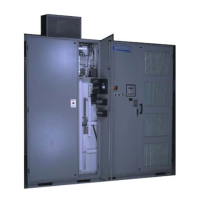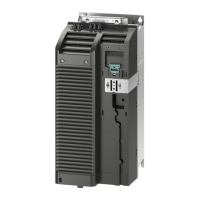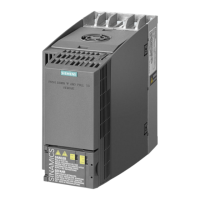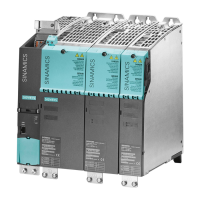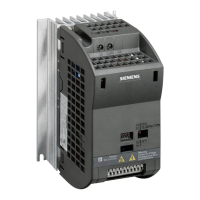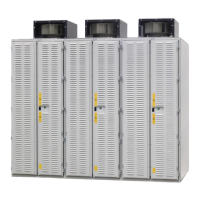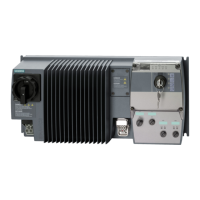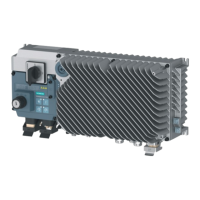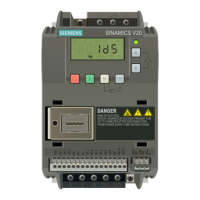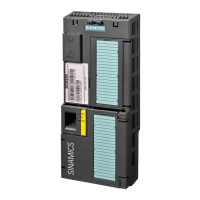5HDOFXUUHQWSX
0D[5HDFWLYHFXUUHQWSX
Figure 7-17 Maximum Reactive Current versus Real Current with Transformer Constant of 0.5
Integral Timer
The integral timer gain can be calculated based on the desired response time (T
trip
) as shown
below:
I
gain
= T
trip
/ (Error * Slow_loop_sample_rate)
Where:
• Error is the maximum error (in per unit) that can be tolerated between I
Reactive,Max
and actual
reactive current I
reactive
• Slow_loop_sample_rate is the sample frequency of the slow loop, typically 450 to 900 Hz.
Note
Sampling Rate
If the sampling rate is below 4500, the slow loop is 1/5 of the sampling frequency (F
samp
).
If the sampling rate is at 4500 or above, the slow loop is 1/10 of F
samp
.
7.9.3 Protecting Transformer by Limiting Secondary Currents
Normally a GH180 drive is designed such that the transformer secondary windings cannot be
overloaded. However, in some instances drives have been provided with bypass, but not cell
redundancy. In this case bypass allows for continued drive operation, but the output power must
be reduced to limit the load on the transformer's secondary windings.
When a cell is bypassed, there are less cells available to supply the power to the motor. This
increases the power produced per cell. Also, the neutral point shift algorithm combined with the
motor's power factor shifts the distribution of power among the remaining cells. This means that
Operating the Control
7.9 Input Side Monitoring and Protection
NXGPro+ Control Manual
Operating Manual, A5E50491925A 205
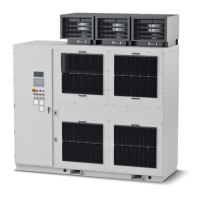
